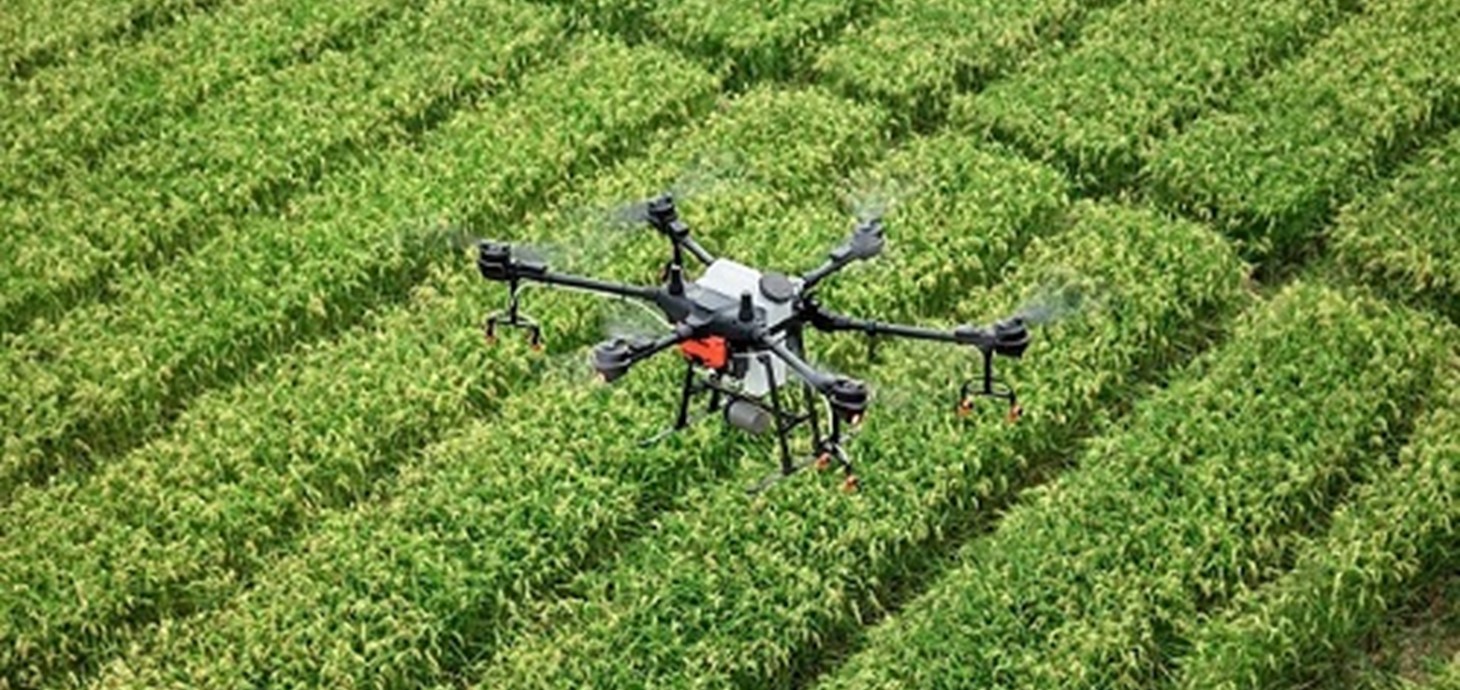
A drone flies over a crop field; the way in which technology has transformed the field of pest control was one of the themes of the Swansea conference
A major international conference at Swansea University has brought together experts in integrated pest management (IPM) to discuss new ways of cutting reliance on harmful chemical insecticides.
More than 130 participants from twenty countries, representing sixty-six local and international organisations, took part in the event, which was called the New IPM Symposium 2022.
Delegates were drawn from all sectors involved in the field, such as industry, academia and regulatory authorities.
Their shared goal is to help reduce use of pesticides in areas such as food production, to prevent the associated impacts on the environment and health.
IPM involves combining nature and modern technology to tackle global environmental problems. Potential applications include:
- Developing resistance in crop pests to pesticides, and disease resistant antibiotics
- Tackling invasive plants, such as Japanese Knotweed, which damage houses and infrastructure
- Reducing chemical use in food production, which would cut risks to health and the danger of soil and water contamination
A multi-agency collaborative approach is at the heart of IPM and Swansea University has the expertise and capacity to bring together all involved. The event was organised by Professor Tariq Butt (Swansea University) and Dr Ian Baxter (IBMA UK).
Sessions covered topics such as IPM Challenges and Solutions, new products and strategy development, case studies of the use of botanicals, semichemicals and pest monitoring, as well as the use of modern technology, computational science applications, regulatory matters, and the use or drones and other unmanned aerial vehicles for remote sensing.
Professor Tariq Butt of Swansea University, conference co-organiser, said:
“The range of speakers demonstrated the interdisciplinary nature of IPM and the greater need for research collaboration to advance the innovative programs that make up New IPM in today’s world and highlight the barriers to development and commercialisation.
The event is a good example of how the new Natural Product BioHUB, led by Swansea University, can bring different sectors together. The conference was also an excellent opportunity for colleagues from Swansea University including Dr Farooq Shah, Professor Peter North, Dr Will Allen, Dr Ben Clunie, Alex Dearden, Dr Joel Loveridge, Pierre-Antoine Bourdan, and Dr Martyn Wood to demonstrate their expertise and research success to a global audience, and to reinforce and develop new collaborative opportunities.”
Dr Ian Baxter of the International Biocontrol Manufacturers Association UK (IBMA UK) said:
‘’IBMA UK was delighted to be co-organising this event with Swansea University. The last two years have been particularly challenging for all of us, but this has not been reflected in a slow-down in the rate of technology adoption by growers – if anything, it has been expedited by the obvious pressures on resources.
This was a perfect moment to get together and exchange information on the latest advances in New IPM.’’
The Symposium was supported by Natural Products BioHUB, a Swansea University collaboration with Swansea City Council to bring together academia, industry, and the community in supporting resilient business growth and greener futures for all. The BioHUB is working with IBMA to host a New IPM symposium in September 2023 focussing on multidisciplinary and cross-sector participation
Abstracts and chair / key speaker information
